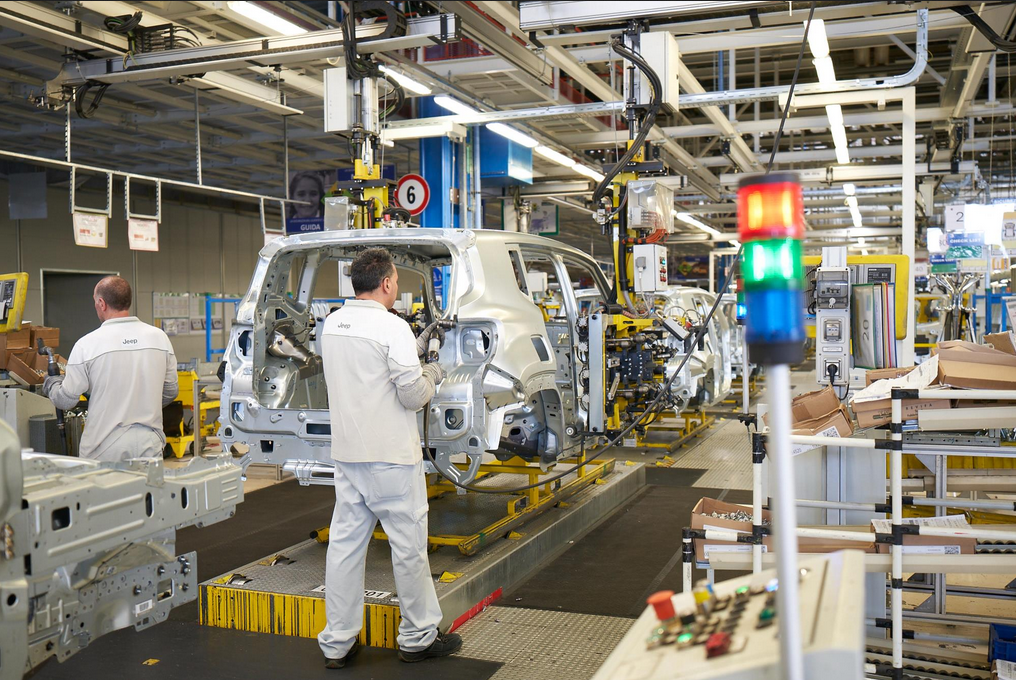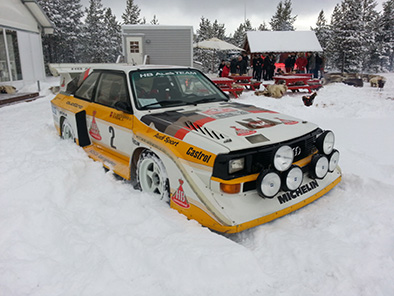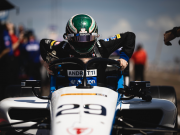 This year marks 25 years of the FCA Melfi Plant, one of the most advanced automotive factories in the whole of Europe. It was reorganised in 2015 for the production debut of Jeep Renegade and Fiat 500X, with an investment of over one billion Euros. Spread over an area of approximately 1.9 million square metres, the plant was built between 1991 and 1993 near San Nicola, 18km from Melfi. The site is on a road linking Basilicata with Campania and Puglia regions, where many plant workers come from. Currently it produces the Jeep Renegade and the Fiat 500X, and from the beginning of 2020 it will also produce the Jeep Compass and the plug-in hybrid models, playing a key role in FCA’s electrification strategy. The factory complex contains areas for stamping, bodywork, painting and assembly and employs 7,300 people. It has 5 presses and 2 cutters for the molding phase; 860 robots for the bodywork phase; 54 robots for painting operations; 278 automatic screwing stations; and roughly 4,000 workers exclusively dedicated to assembling cars.
This year marks 25 years of the FCA Melfi Plant, one of the most advanced automotive factories in the whole of Europe. It was reorganised in 2015 for the production debut of Jeep Renegade and Fiat 500X, with an investment of over one billion Euros. Spread over an area of approximately 1.9 million square metres, the plant was built between 1991 and 1993 near San Nicola, 18km from Melfi. The site is on a road linking Basilicata with Campania and Puglia regions, where many plant workers come from. Currently it produces the Jeep Renegade and the Fiat 500X, and from the beginning of 2020 it will also produce the Jeep Compass and the plug-in hybrid models, playing a key role in FCA’s electrification strategy. The factory complex contains areas for stamping, bodywork, painting and assembly and employs 7,300 people. It has 5 presses and 2 cutters for the molding phase; 860 robots for the bodywork phase; 54 robots for painting operations; 278 automatic screwing stations; and roughly 4,000 workers exclusively dedicated to assembling cars.
The FCA Melfi Plant is an emblematic example of technological and organisational evolution, and has always been a shining beacon of innovation. It was the first to apply the “integrated factory” model, decentralising responsibilities and integrating functions compared to preceding rigid systems. It then evolved and applied “modular factory” and “network factory” models. It has always followed “lean production” principles and adopted functional mechanisms for improving competitiveness. Today, it performs as a digital factory that exploits enabling technologies and Industry 4.0 systems, with a platform that interconnects and integrates company processes, with maximum synthesis of organization, technology and people. Twenty-five years on and Melfi never stops, it looks towards a future with new models, innovation and development. The Plant Academy, created on-site in 2015, was created as an experimental breeding ground of ideas and a talent factory focused on developing individual potential. Its goal is to improve the factory’s overall competitiveness, economic sustainability, product quality and capacity to create innovation.
It was initially tasked to define the skills needed to perform each functional activity in the best way. The second stage involved the creation of a training package based on the experience and know-how of the best workers in in each sector. Next came methods for developing people’s skills, using assessment tools and development paths devised to stimulate and train those destined for more responsible roles. This meant that hidden talents could be discovered and guided along growth paths devised for them. So far, 119 growth paths have been developed, and over 300 training modules created. Learning via Academy training modules means alternating classroom, simulation, verification and practical applications. In Melfi, new technologies and new skills arrive together and work together, because personnel are first trained to use and improve them in simulation laboratories. Four main laboratories are used in the Plant Academy – for virtual process simulation, reproduction of logistic processes, digital areas and technical areas – all dedicated to the simulation phase of theoretical concepts. This helps with the learning of skills but also aids with research and test innovative solutions.
The Melfi Plant Academy offers an environment where people and creativity are central to everything. Those who have ideas to propose and skills to apply are free to express themselves, regardless of hierarchy and roles. In 2018 alone, 5,000 ideas were presented and discussed. Even the Academy’s aesthetics are unusual for a factory, with rooms echoing those in Silicon Valley companies in California. The spaces have all been created internally with recycled materials, thanks to the effort and passion of factory personnel. The area is completed by various classrooms next door to the laboratories, so theoretical concepts can immediately be put into practice in simulation labs. Everything learned here is shared with the other FCA Plant Academies via a vast digital archive. The Melfi Plant Academy was a pioneer and its example has led many other FCA plants to create their own Academies.
This investment in the Melfi plant is part of a much wider plan, which includes the introduction of 13 all-new or restyled models, and the launch of an electrification plan, with the introduction of 12 electric versions of new or existing models. The production of Compass and Renegade PHEV versions in the Melfi plant will sit alongside the production of the Fiat 500 BEV production at the Mirafiori complex in Turin and the hybrid and battery electric Maserati models set to be produced in Modena. Further plans include production of the Ducato Electric at the Sevel plant in Val di Sangro and the new Alfa Romeo Tonale in Pomigliano d’Arco.
The FCA strategy is to electrify the range while respecting the guidelines of each brand, but to also create an e-Mobility team to coordinate all activities related to electric mobility. This requires a series of agreements with various partners such as Enel X, Engie, Terna, Transatel, Lexis Nexis and Generali, as has happened in recent weeks, to help customers choose the electric car that best suits their needs and provide a complete range of stress-free services.

































